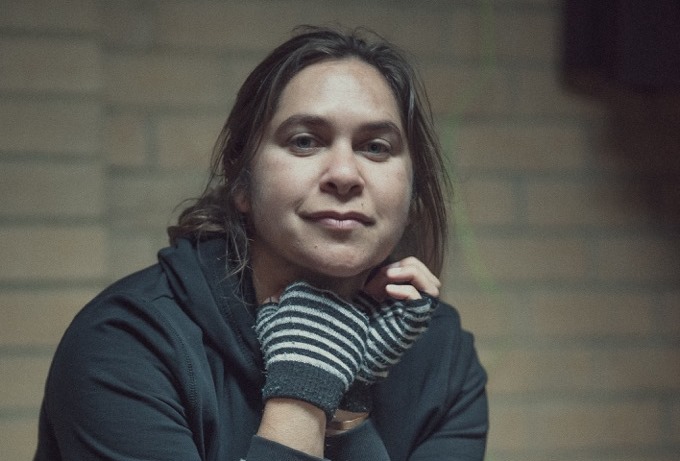Tracey Rigney (Photo credit: Michelle Grace Hunder).
Growing up in western Victoria, Tracey Rigney, a member of the Wotjobaluk and Ngarrindjeri peoples, rarely saw black faces on television apart from David Gulpilil and Ernie Dingo.
Today the writer-director, who started out as a playwright with Belonging and How Blak R U? in 2002, is among the screen industry’s fast-rising Indigenous storytellers.
Currently she is crafting ideas for one of eight shorts which will comprise the anthology feature Cook 2020: Our Right of Reply, jointly commissioned by Screen Australia and the New Zealand Film Commission.
When there was a call-out for applications initially she decided not to apply, given the demands on her time and energy as the mother of a two-and-a-half year-old girl.
A producer friend told her she had some good ideas and encouraged her to give it a go. “I applied not thinking I would get anywhere,” she tells IF.
She changed her mind about the subject at a residential lab attended by the Indigenous teams at the Shark Island Institute in Kangaroo Valley a couple of weeks ago.
One of the mentors, Louise Gough, who is head of development at Robert Connolly’s Arenamedia and head of new work at the Belvoir theatre, asked her a simple question.
That led her to think of a story about a teenage girl who uses street art to express her feelings about the white man who was responsible for killing her ancestors in the 1830s.
The filmmaker served a long apprenticeship. Endangered, her half-hour documentary which looked at the scarcity of eligible Aboriginal men and the effects this has on Aboriginal women looking for love and the survival of Aboriginal people and culture, premiered at the Melbourne International Film Festival in 2005 and screened on SBS.
Her first short, drama Dodger’s Heart screened on NITV in 2006.
She served as a director’s attachment on Wayne Blair’s The Sapphires, which was her first time on a film set. “I watched how the department heads work together and Wayne asked me to direct a B crew for a day,” she says.
In 2017 she made her TV series writing debut on the ABC Indigenous teenage drama The Warriors, which was co-created by Connolly and Tony Briggs. “I had no idea what I was doing but I learned so much,” she says.
Last year she directed the online drama series A Chance Affair, which was created by and starred Steven Oliver, which she describes as “an absolute gift.”
She also wrote Elders, a short directed by Briggs, based on her own grandfather’s experience when he was a boy of five or six. Two elders took him into the bush and left him alone, when he realised he would have to find his own way home. It will premiere at the Sydney Film Festival and later screen on the ABC.
In 2004 she conceived the idea of a play about an Aboriginal woman who is in a coma, which would span several decades, reliving her memories and her partner’s memories.
Ever since she has been developing Slow Awakening with director/producer Sasha Zahra and songwriter/composer Dr Lou Bennett, a former member of the internationally acclaimed music trio Tiddas. She hopes to finish the play in the next year or so.



